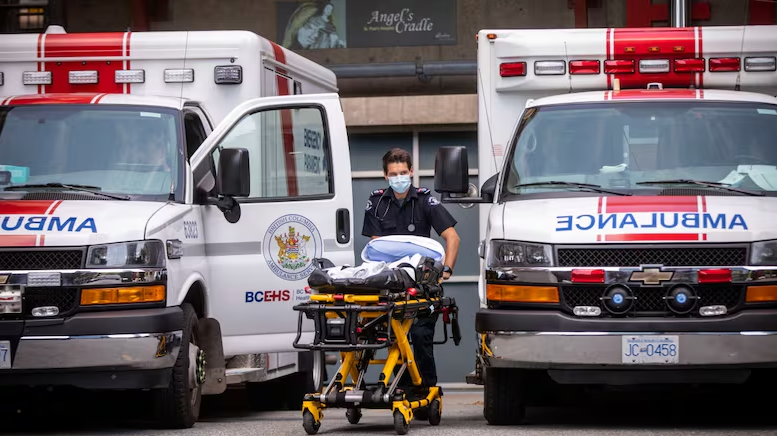B.C. Paramedics Facing ‘Profound Mental Health Crisis,’ Union Urges Urgent Support Measures
Sarah Desjardins
8/8/20252 min read


After more than three decades as a paramedic in British Columbia, Terry McManus still remembers the sleepless nights—and the lingering weight of calls that never leave the mind.
“You come home from work and there’s something still on your mind,” he said. “You might snap at someone over something trivial, but it’s not about that—it’s about something you’ve been carrying from a week ago, or even a year ago.”
McManus, now retired, says that while trauma was part of the job, meaningful mental health support was often absent.
“I once had a counsellor stop a session because what I was describing was too graphic for them. That was just one call out of thousands,” he said.
His experience reflects a broader concern raised by the Ambulance Paramedics of B.C., the union representing roughly 6,000 paramedics and dispatchers. The union says the profession is in a “profound mental health crisis,” citing “unprecedented levels” of wellness claims and warning that 30 per cent of members are either off work for mental health reasons or working while undergoing treatment.
According to the union, nine B.C. paramedics have died this year from a range of causes, including suicide—cases the union believes are very likely connected to workplace stress.
Compounding Pressures
Union wellness coordinator Nicki Ropp says the last six years have been especially punishing, with overlapping crises stretching paramedics to their limits.
“The opioid crisis, the pandemic, catastrophic flooding, the heat dome, wildfires, staffing shortages—it all adds up,” she said. “We keep showing up, but we’re not getting the recovery time or the tools we need to process the trauma.”
Last year, B.C. paramedics responded to nearly one million calls. Ropp says many are now experiencing burnout and “compassion fatigue.”
Existing Support—But Calls for More
B.C. Emergency Health Services (BCEHS) offers mental health services, including debriefing after traumatic calls, crisis support, and counselling through its Employee and Family Assistance Program. WorkSafeBC also provides access to counsellors and mental health specialists.
But BCEHS chief operations officer Jennie Helmer acknowledges the need for improvement.
“We’re working on an immediate action plan to introduce more support, more education, more tools—and then a longer-term approach as well,” she said.
McManus believes paramedics need 24/7 access to counsellors who understand first responder trauma—ideally professionals with emergency department experience.
“They need to see what we see, feel it, and respond with compassion,” he said.
For Ropp, the priority is clear: faster access to psychological support and stronger benefits that allow paramedics and dispatchers to be proactive about their mental health.
“We’ve come a long way,” she said, “but it’s not enough.”
News
Stay updated with the latest BC news stories, subscribe to our newsletter today.
SUBSCRIBE
© 2025 Innovatory Labs Inc.. All rights reserved.
LINKS
